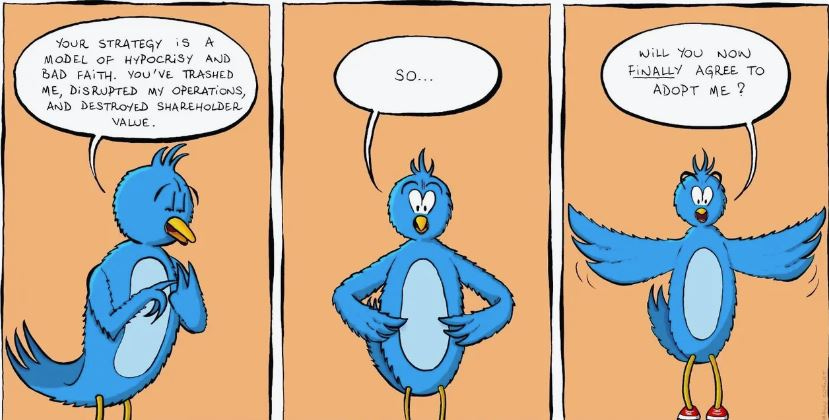Rise and Fall of the Rule Breakers

Elon Musk and Boris Johnson each exercise a disregard for rules. Musk claims that the only laws he obeys are the laws of physics; everything else is negotiable. With less philosophical elegance, Johnson said of the party gate allegations, “no one told me it was against the rules, ” oblivious to the reality that his government introduced the rules.
More recently, both men, neither known for pulling out, have withdrawn from previously committed ventures; Musk to acquire Twitter and Johnson to lead the Conservative Party. Both men defy convention, thrive on chaos, and take on bold projects and setbacks in their stride, refusing to walk away from disasters that would derail most.
The mainstream media assume Boris is finished and now condemned to make millions from his memoirs and the after-dinner speaking circuit. While this may be right, it would be premature to assume so.
As Johnson barricaded himself into No 10 for days after most people would have come out quietly waving a white flag, he insisted that his popular mandate got him there. He even threatened a snap election to show his fraying parliamentary supporters that they were powerless; it was for the people to decide.
Eventually, Boris was stabbed in the front by his closest colleagues but, under the accepted constitutional procedure, remains PM for the next six weeks. During this time, his would-be replacements engage in a slugfest of hustings and debates, described by one participant as a “knife fight in a phone box”.
Intriguingly Johnson’s resignation speech avoided using the term resign, ominously choosing the less permanent, “stepping down.” Less surprisingly, he cited the party he led rather than the parties he attended as the reason for his downfall. These comments indicate continued confidence in his popular appeal and an open mind on how he might choose to apply it in future. This future could even include a Macronesque launch of a new party.
There are emerging signs of remorse within Tory party circles over what they have done. With the blue-on-blue struggle to succeed Boris as leader moving into its final stages, the media attention has moved on from Boris’s omnishambles.
Come September, the parliamentary party and the wider party membership will have established who they want to be their leader. However, they have also probably underrated what the broader British electorate might think of this decision come to the next election. As the new leader deals with the harsh realities they inherit, Conservative buyer’s remorse may grow.
Meanwhile, Elon Musk is also suffering a bout of buyer’s remorse regarding his rash decision to buy Twitter earlier this year. Having agreed to buy Twitter in March for a not unreasonable-looking but contrived price of $54.20 per share, Musk has the unenviable task of negotiating an exit. While Musk claims that it is impossible to proceed because he cannot know how many bots are on Twitter, the Twitter board is accusing Musk of breach of contract and irreparable damages to the company. The decision by the Delaware courts to grant an early hearing in October indicates they are sympathetic to Twitter’s concerns.
Only Musk knows how he got to this place. His critics argue it was a joke taken too far or even an elaborate distraction to allow him to sell Tesla shares absent the usual scrutiny. The whole situation is replete with irony, such as the media’s initial abhorrence that the billionaire should own Twitter is now saying he must now obey the rules and buy it. The matter looks resolvable and, as not governed by the laws of physics, is a Musk negotiable.
Moving fast and breaking things has been getting increasingly bad press. Rule breaking and rule breakers are not as popular as they used to be. None of the contenders for the Conservative leadership intends to offer the chaotic Johnson a place in their cabinet. The gravity of the problems in front of us now demands rational and organised leaders. Musk will become distracted by the Twitter matter, but it will not deter him in his roles at Tesla, SpaceX and other ventures. Johnson will write some books, do some speaking engagements and reinvent himself. One suggestion is that Boris does a Clegg and becomes Musk’s spokesperson and spin doctor. After all, they have much in common. Boris tells a good story, and he needs the money.
Jeremy
Devon
The post Rise and Fall of the Rule Breakers appeared first on Progressive.



